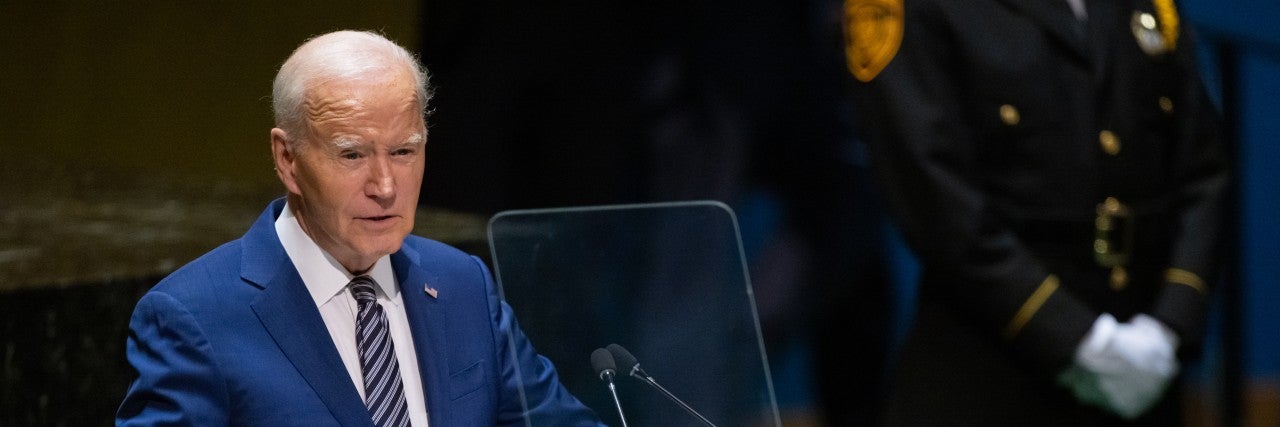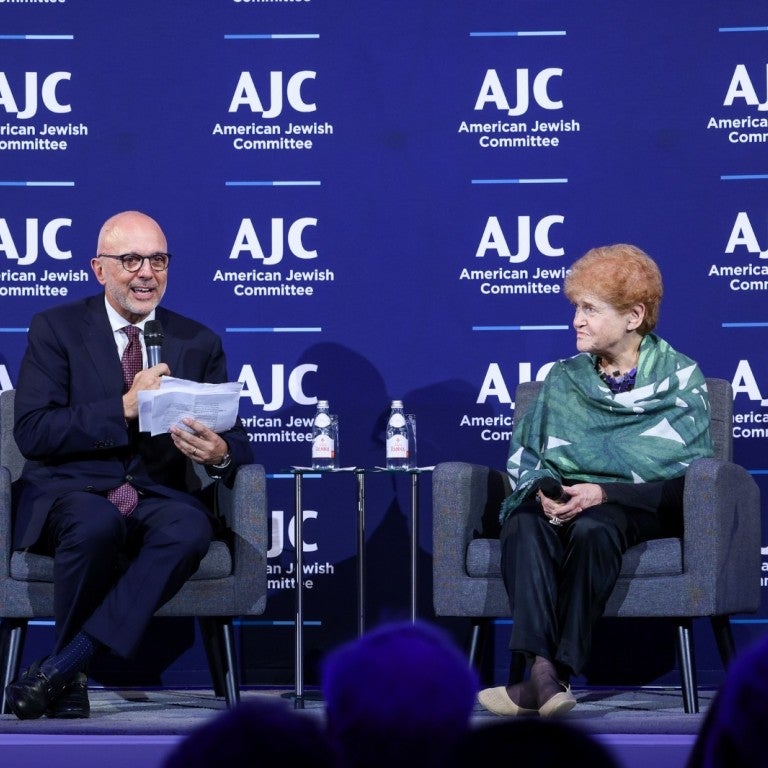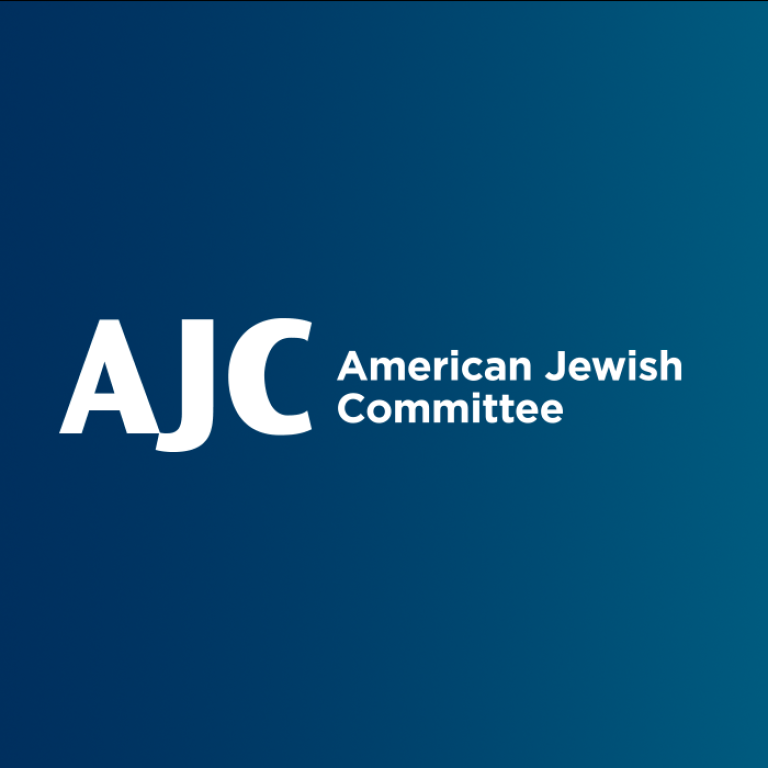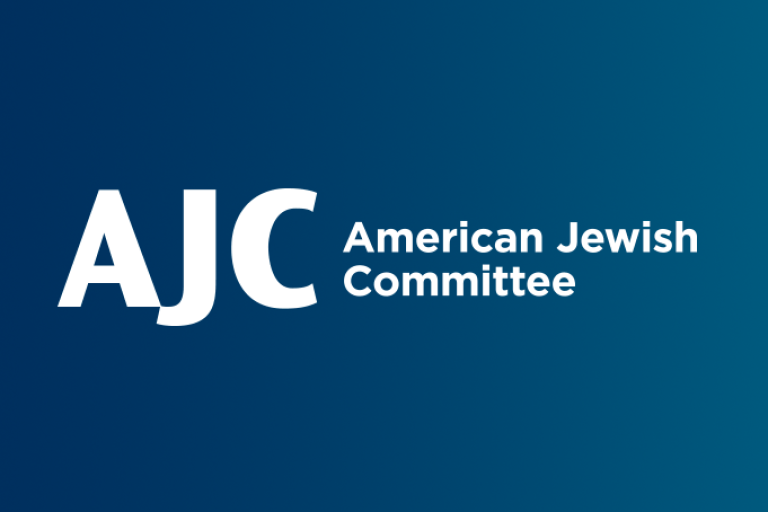September 21, 2023
U.S. President Joe Biden delivered his third address to the annual gathering of world leaders at the United Nations General Assembly in New York on Tuesday.
Biden’s key focus was on calling for more international support for Ukraine as well as stressing the need for greater international cooperation on issues like climate change, human rights, artificial intelligence, development, and infrastructure.
However, Biden also turned his focus toward the Middle East, speaking about achieving peace in the region and thwarting Iran’s pursuit of nuclear weapons.
See how AJC is leading Jewish community’s diplomatic outreach
Here are key takeaways from Biden’s address to the United Nations.
- The importance of widening the circle of peace between Israel and its neighbors
Biden emphasized America’s commitment to a two-state solution in the Israeli-Palestinian conflict and the value of Arab nations normalizing relations with Israel regardless of that conflict. Both are key to stabilizing the Middle East, he said.
"Israel's greater normalization and economic connection with its neighbors is delivering positive and practical impacts even as we continue to work tirelessly to support a just and lasting peace between Israelis and Palestinians--two states for two people,” Biden said.
Of course, Biden was referring to the groundbreaking Abraham Accords and the historic agreements signed between Israel and the United Arab Emirates and Bahrain three years ago, joined later by Morocco.
How much do you really know about the Abraham Accords?
Last year, in a history-making speech to the UN General Assembly, then-Israeli Prime Minister Yair Lapid took a significant step in endorsing a two-state solution while cautioning that a future Palestinian state must not be “another terror base.” Current Israeli Prime Minister Benjamin Netanyahu has signaled he is open to negotiations with the Palestinians and is willing to cooperate with them on security matters.
AJC has long held that a durable two-state solution is the only realistic resolution to the Israeli-Palestinian conflict, and if it is to be achieved, it must be established through direct bilateral negotiations between the parties themselves.
Biden met with Israeli Prime Minister Benjamin Netanyahu on the sidelines of the UN on Wednesday. It was the first in-person meeting between the two leaders since Netanyahu returned to office in late 2022. The two leaders discussed judicial reforms, the state of normalization talks with Saudi Arabia, the Iranian threat, and the situation in the West Bank.
- Iran must never acquire nuclear weapons
Biden said that another key area in stabilizing the Middle East is making sure Iran does not develop a nuclear weapon. He said America is working with partners “to address Iran’s destabilizing activities that threaten regional and global security.”
“We remain steadfast in our commitment that Iran must never acquire nuclear weapons,” he said.
In an alarming September report, the International Atomic Energy Agency (IAEA), the UN’s nuclear watchdog, reported that Iran has expanded its stock of near-weapons-grade uranium. Further, just days ahead of the UNGA session, the IAEA strongly condemned Iran's "unprecedented" decision to bar roughly one-third of the IAEA's most experienced inspectors from overseeing its nuclear sites. Meanwhile, the sanctions on Iran’s missile program are set to expire in October.
In a July letter to members of the UN Security Council, AJC called on the Council and every nation to use all available measures to constrain Iran’s domestic ballistic missile production capabilities.
As the U.S. President spoke, Iranian Americans were rallying outside in opposition to President Ebrahim Raisi, who addressed the General Assembly hours after Biden. Under Raisi, Iran has been steadfast in its commitment to deny its people human rights.
Handpicked to serve as President of Iran by Ayatollah Khamenei, Raisi is known as "The Butcher of Tehran" for his role in thousands of political killings in 1988.
- Standing up to Russian aggression
Biden closed his speech by addressing the war in Ukraine and strongly criticizing Russia, which he said is to blame for an"illegal war of conquest brought without provocation."
Biden’s address came ahead of Ukrainian President Volodymyr Zelensky's speech.
"No nation wants this war to end more than Ukraine," the President said. "We strongly support Ukraine in its efforts to bring about a diplomatic resolution that delivers a just and lasting peace. Russia alone bears responsibility for this war."
Biden also spoke about the need to protect the territorial integrity of nations and how it is central to the UN Charter.
"If we allow Ukraine to be carved up, is the independence of any nation secure?" Biden asked. "I respectfully suggest the answer is no. We have to stand up to this naked aggression today and deter other would-be aggressors tomorrow."
Since the start of the war, AJC, in addition to raising millions of dollars for humanitarian relief efforts for Ukrainians, has successfully advocated for crippling sanctions against Russia, and increased security, military, economic, and humanitarian assistance for Ukraine and Central European partners. The UN General Assembly has adopted six AJC-supported resolutions condemning Russia’s aggression and demanding its withdrawal from Ukraine.
The UN Human Rights Council has created, with AJC’s urging, an independent international commission of inquiry on Ukraine, which has already determined that Russia is responsible for war crimes, including “willful killing, unlawful confinement, torture, rape, and other sexual violence, unlawful deportation of political prisoners and children.” Going forward, AJC is urging countries to block Russia’s bid for membership in the UN Human Rights Council.
- Upholding the values of the Universal Declaration of Human Rights
Toward the end of his address, Biden turned towards discussing human rights, noting that it is the 75th anniversary of the adoption of the Universal Declaration of Human Rights, and that the rights contained in the declaration are “elemental and enduring.”
Specifically, Biden noted human rights abuses in China, Iran, and Sudan.
“We cannot turn away from abuses, whether in Xinjiang, Tehran, Darfur, or anywhere else,” the president said.
“These rights are part of our shared humanity. When they’re absent — when they are absent anywhere — their loss is felt everywhere. They are essential to the advancement of human progress that brings us together.”





